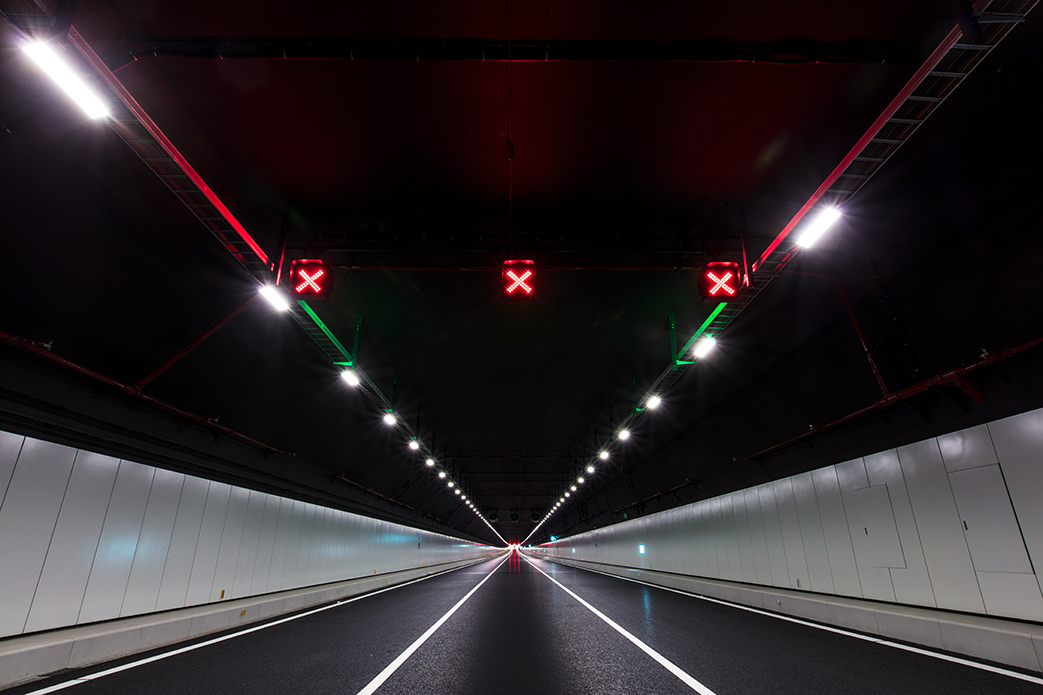Over 60% of China's land area is occupied by special climatic regions such as plateaus, coastal areas, and extreme cold regions. Tunnel lighting systems in these areas face extreme challenges throughout the year: tunnels on plateaus experience accelerated lamp aging due to strong ultraviolet radiation, coastal areas have equipment corroded by salt spray, and northern regions face sudden drops in light transmittance caused by freezing rain. A survey by the Ministry of Transport shows that the incidence of accidents in tunnels in special climatic regions is higher than in ordinary regions, with inadequate lighting listed as one of the key influencing factors.

The new generation of intelligent lighting systems enhances environmental adaptability through three major technological innovations:
Material Upgrade: Uses shell made of weather-resistant composite materials that pass salt spray tests and low-temperature impact tests.
Optical Optimization: Develops a broad-spectrum anti-interference light source to improve penetration in foggy and hazy weather.
Intelligent Response: A meteorological linkage system can predict weather changes in advance and automatically switch lighting modes.
For instance, the Hong Kong-Zhuhai-Macao Bridge is a world-class super engineering project that integrates "bridge-island-tunnel." The successful supply and application of lighting products by a certain company (Sansi, implied from context) along the entire Hong Kong-Zhuhai-Macao Bridge once again demonstrates China's smart manufacturing and innovation capabilities to the world.
The LED tunnel lights provided for the Hong Kong-Zhuhai-Macao Bridge tunnel are the results of a national "863" project undertaken by the company. This product adopts reflective light-emitting technology and has been listed as an "application technology for energy conservation and emission reduction demonstration projects by the Ministry of Transport." It features "visible light but invisible lamps," with soft and comfortable light without glare, and professional light-distributing lenses to meet the optical distribution needs of different tunnels, earning it the reputation of "black technology" among tunnel lights.
The National Engineering Research Center for Intelligent Transportation Systems points out that the next step will focus on the research and development of innovative technologies such as self-cleaning coatings and ice-melting heating to continuously improve the environmental tolerance limits of lighting systems.